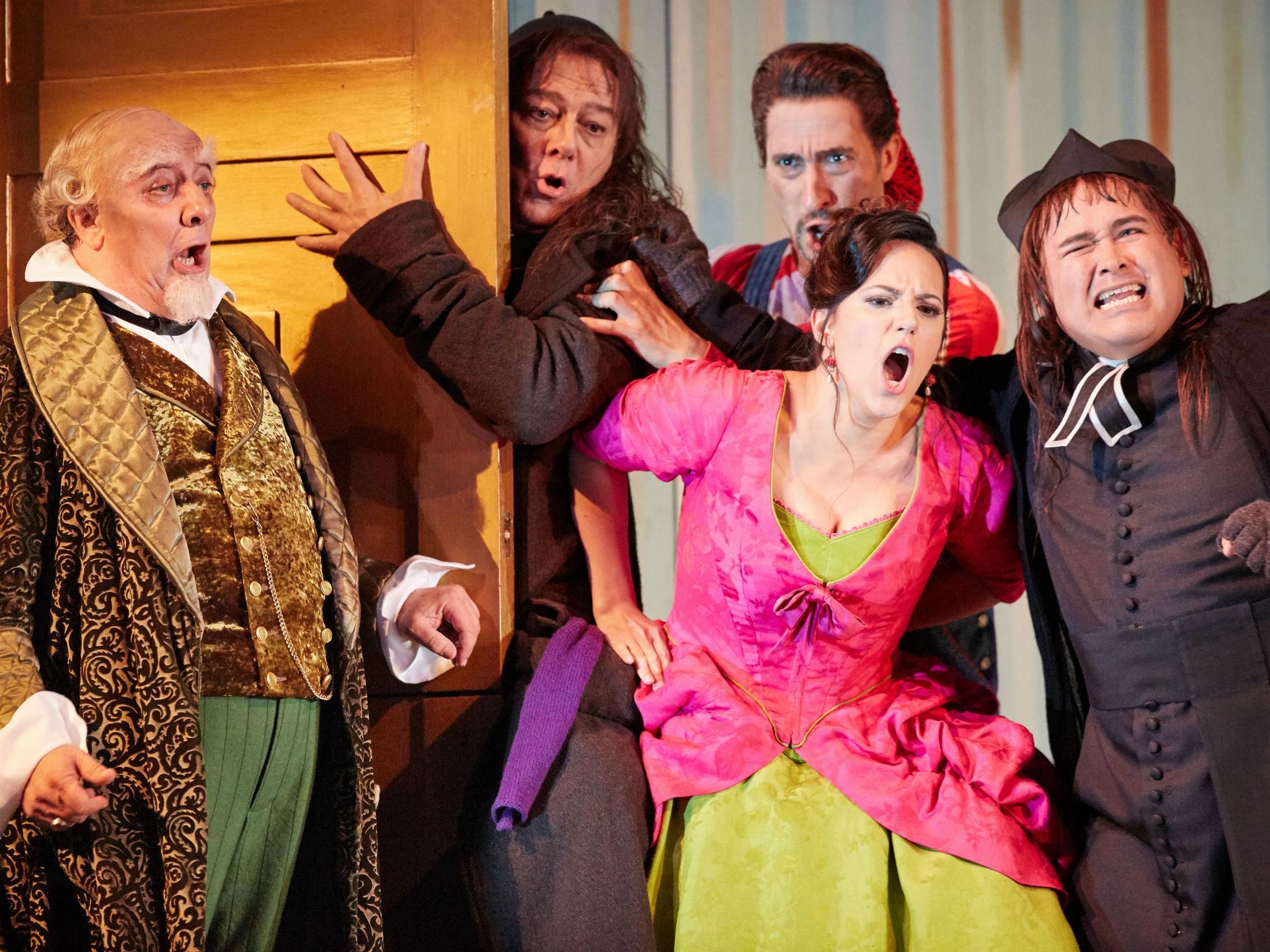Il barbiere di Siviglia, Royal Opera House, London, review: 'The acting and singing make it pulsatingly real'
ROH follow their new production of Bellini’s Norma with a revival of the Leiser-Caurier Barbiere di Siviglia

Your support helps us to tell the story
From reproductive rights to climate change to Big Tech, The Independent is on the ground when the story is developing. Whether it's investigating the financials of Elon Musk's pro-Trump PAC or producing our latest documentary, 'The A Word', which shines a light on the American women fighting for reproductive rights, we know how important it is to parse out the facts from the messaging.
At such a critical moment in US history, we need reporters on the ground. Your donation allows us to keep sending journalists to speak to both sides of the story.
The Independent is trusted by Americans across the entire political spectrum. And unlike many other quality news outlets, we choose not to lock Americans out of our reporting and analysis with paywalls. We believe quality journalism should be available to everyone, paid for by those who can afford it.
Your support makes all the difference.Covent Garden were wise to follow their wonkily-conceived new production of Bellini’s Norma with a revival of the Leiser-Caurier Barbiere di Siviglia, one of the most dependable weapons in their armoury. Rossini’s sparkling comedy there finds its ideal visual reflection, kicking off with a lovely sight-gag as the whispered conspiracy between Almaviva and Fiorello turns out to involve an entire stage-full of musicians clumsily preparing to serenade the Count’s beloved. The stylised boxed sets, with their soft pastel colours, suggest a world which is entirely artificial, but the acting and singing make it pulsatingly real.
Each new cast – and this is the fourth – has its own strengths. This one is blessed with a gale-force Figaro (Vito Priante) and a Don Basilio (the great Ferrucio Furlanetto) whose turns his calumny-aria – one of Rossini’s most surreal notions – into a larger-than-life nightmare for the hapless Doctor Bartolo (nicely characterized by Jose Fardilha). Daniela Mack makes an unusually commanding Rosina, and when the Mexican tenor Javier Camarena settles into the part of Almaviva – his opening aria was rough on the first night – his singing grows steadily in beauty and authority. But his characterisation hasn’t been thought through: his demeanour is that of a servant, not an aristocrat, so the necessary dramatic contrast with Figaro is lost. Henrik Nanasi conducts with fine attention to detail.
Join our commenting forum
Join thought-provoking conversations, follow other Independent readers and see their replies
Comments